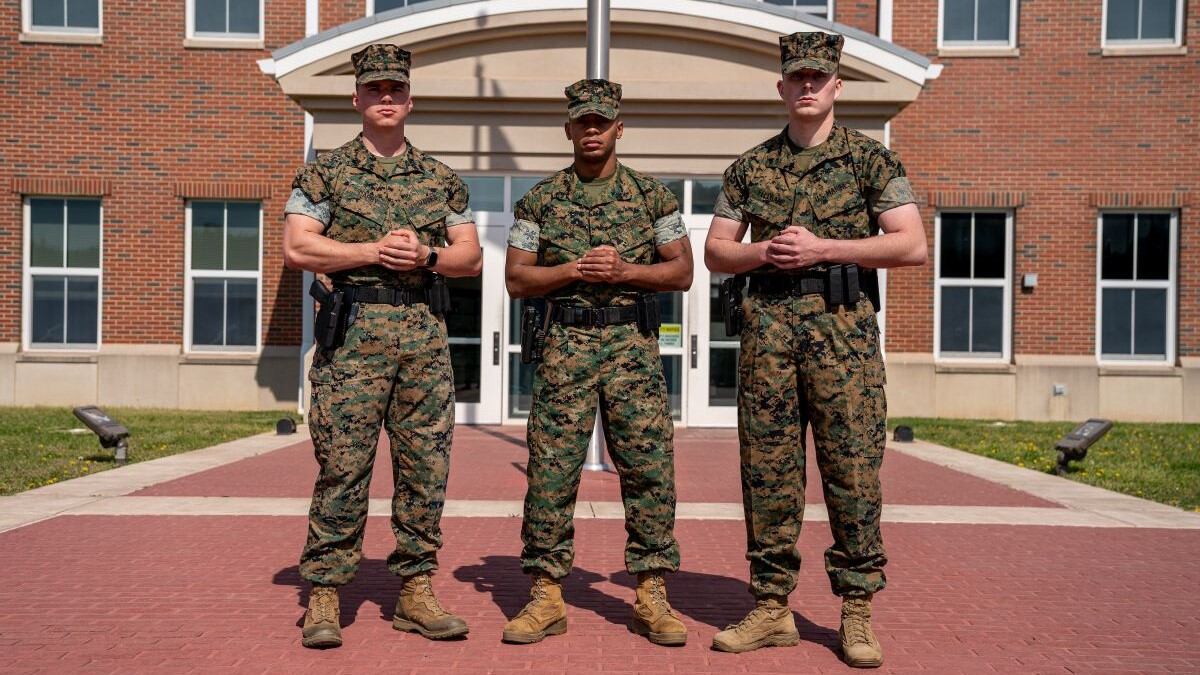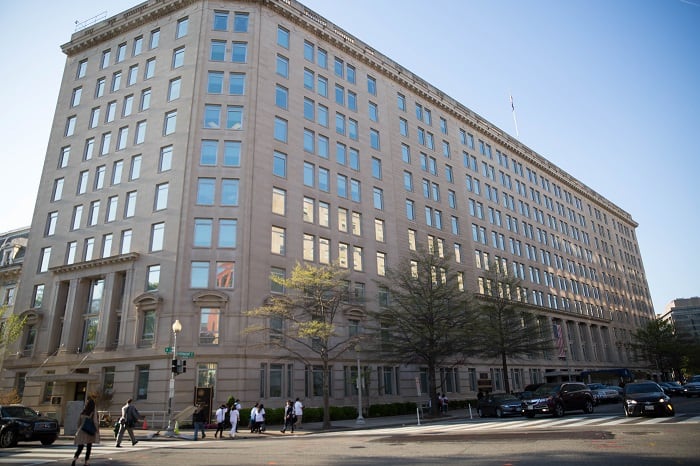Lance Cpl. Eduardo Galicia was standing duty on the midnight shift at the U.S. embassy in Georgetown, Guyana.
It was approximately 2:30 a.m. on July 1. The Marine security guard got a call from the embassy’s front control center: A local guard was having a medical emergency.
Galicia came running.
Galicia, 21, ended up saving the local guard from dying of an apparent heart attack, thanks to “muscle memory” that the Marine attributed to his military training.
RELATED

A native of Southern California’s Mission Viejo and Laguna Niguel, Galicia grew up not far from Marine Corps Base Camp Pendleton, but no one in his family was in the military, he said in an interview Oct. 13 with Marine Corps Times.
When he was about 12 years old, he was sitting close to the TV when a commercial for the Marines came on, featuring a Marine in the color guard.
“I told myself, ‘I want to do that. I want to be just like him,’” Galicia recalled.
He joined the Marine Corps in March 2021, on an infantry contract that guaranteed him a job in embassy security for two years, he said.
Galicia said he signed that particular contract to see the world, learn more about the Defense Department’s role overseas and make connections in embassies. Through boot camp and training for infantry and embassy jobs, he gained a variety of medical skills, he said.
He spent 10 months at the U.S. embassy in Wellington, New Zealand, before coming to Georgetown, the capital of the South American nation of Guyana.
On that eventful midnight shift in July, Galicia saw a group of local guards who were clearly distressed. One local guard was holding her heart, her breathing labored.
“Everything was chaotic, but that’s when my training kicked in,” Galicia said.
The Marine approached her and tried to get her to communicate, but she was unresponsive. The Marine Corps has declined to release that local guard’s name, citing privacy reasons.
Galicia performed a basic triage method and determined the guard was having a heart attack, he recounted. Once she started foaming at the mouth, he laid her on the ground.
He told the local guards to get him a medical bag, call the emergency service vehicle and help him with the patient.
Meanwhile, the patient stopped breathing. Galicia provided rescue breaths and CPR until she was able to breathe on her own and her pulse had returned.
When the emergency vehicle showed up, Galicia helped put her into it, and he sent other local guards with her to look after her, he said.
With the local guard being rushed to a nearby hospital, Galicia called his detachment commander, who relieved him for the night.
But though Galicia headed home, he made a point of staying up for several more hours, until he heard the news that the local guard had fully recovered, he said.
Galicia’s actions had saved the local guard’s life, according to a Marine news release in September.
When he called his family members to tell them about his eventful morning, they were shocked, and they peppered him with questions about what had happened.
His father, who had been a nurse, especially wanted to hear the details of how the Marine had treated the local guard, Galicia recalled.
Then his father said, “Good job, son. I’m proud of you.”
It was a proud moment for the young Marine.
Another proud moment: receiving a Navy and Marine Corps Achievement Medal on July 19 from Capt. Richard Piazza, the Marine security guard officer responsible for Galicia’s detachment. At that point, Galicia said, it felt like that chaotic 10-minute period a few weeks prior had happened just yesterday.
“He is a true professional, something we hope for in all our Marines,” said Lt. Col. Chad Bonecutter, the commanding officer of the Marine Corps Embassy Security Group region that includes Guyana, in a statement to Marine Corps Times.
When Bonecutter called Galicia to tell him what a great job he had done, the officer was struck by the lance corporal’s humility, Bonecutter said.
Galicia “immediately praised his leadership for providing him with the appropriate training so he was able to respond confidently to the situation,” Bonecutter said in the emailed statement. As well, he was “genuinely happy that the (local guard) was in stable condition and getting the medical care she needed.”
As the interview with Marine Corps Times was about to wrap up, Galicia had one more thing to say: He was grateful to his friends, co-workers and leaders.
“I couldn’t have done nearly what I accomplished to this day without the Marine Corps,” he said.
Irene Loewenson is a staff reporter for Marine Corps Times. She joined Military Times as an editorial fellow in August 2022. She is a graduate of Williams College, where she was the editor-in-chief of the student newspaper.




